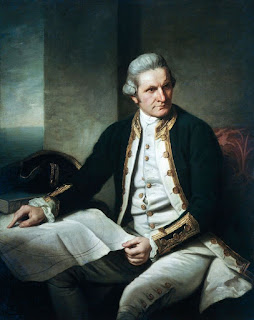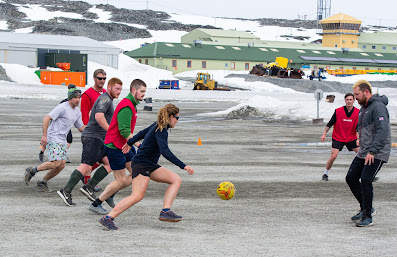Surviving At Sea
This is a particularly unusual year for those travelling to Antarctica. The Covid restrictions have meant that air travel via the Falklands, Punta Arenas and Cape Town (followed by either further air travel or boat passage to the Antarctic continent) will not be possible. To combat this, ~ 60 British Antarctic Survey (BAS) staff and the ship's crew will spend two months aboard the James Clark Ross (JCR); named after a 19th century British polar explorer. This is extra special as this will be the JCR's final journey with BAS. Personally, I am looking forward to this more 'old school' explorer mode of travelling South and what a way to celebrate the 200 year anniversary of the Antarctic continent being sighted (it's still subject to debate whether this first sighting of Antarctica was attributed to a Russian expedition or a British one only a handful of days later).
For those of you who don't know, the British Antarctic Survey has five research stations in Antarctica and one base in the Arctic - confusing I know! The Arctic base, Ny-Ålesund, is located within the Norwegian archipelagos Svalbard. In Antarctica, the first base we will meet on our voyage South will be Bird Island followed by King Edward Point and then Signy. After passing the Antarctic Circle (66.5° South), we will arrive at Rothera (67.4° South) (the research base that I will be working on) and then the JCR continues further south to Halley (75.4° South). The bases are all unique in terms of the inhabitants, environment and climate and each research station has specialist research projects and equipment. Every year, a pool of staff are recruited to continue providing support for polar operations in the form of research, maintaining the base from chefs to electricians and field guides for assisting with safe practice whilst navigating the Antarctic environment.
As you can see from this map, it's not only the British that are working in Antarctica. A whooping 70 research bases are operational on the continent, representing 29 countries. Antarctica is not a desolate as you may think but nevertheless, it still remains the most understudied continent.
In order to send us into such demanding environments, we must complete a series of training programmes and technical courses. The Personal Survival Techniques course taught us how to survive at sea. In an extremely interactive and engaging session, member of the team jumped from the 'ships' platform and practised cold water swimming- essentially a sculling hand movement whilst squeezing you legs together. We were subsequently thrown into a panic situation where the emergency alarm sounded and we had to abandon the ship- in this case, the swimming pool! Fake rain started to exude from the ceiling and a team effort was required to get everyone to safety.
In addition to providing a great bonding opportunity- we have taken away essential skills that will be necessary during our time at sea. In the event of abandoning a ship (eg. fire), life rafts are launched as an exit strategy. The crew must be familiar with the correct water entry techniques, safe procedures and have the know-how for preserving human life once ties from the mother ship have been cut. We explored the rationing pouch and what to do with the contents of a survival kit. It turns out a condensed block on carbohydrates (the size of a small carton of juice) can provide you with enough energy to keep you alive each day!









Comments
Post a Comment